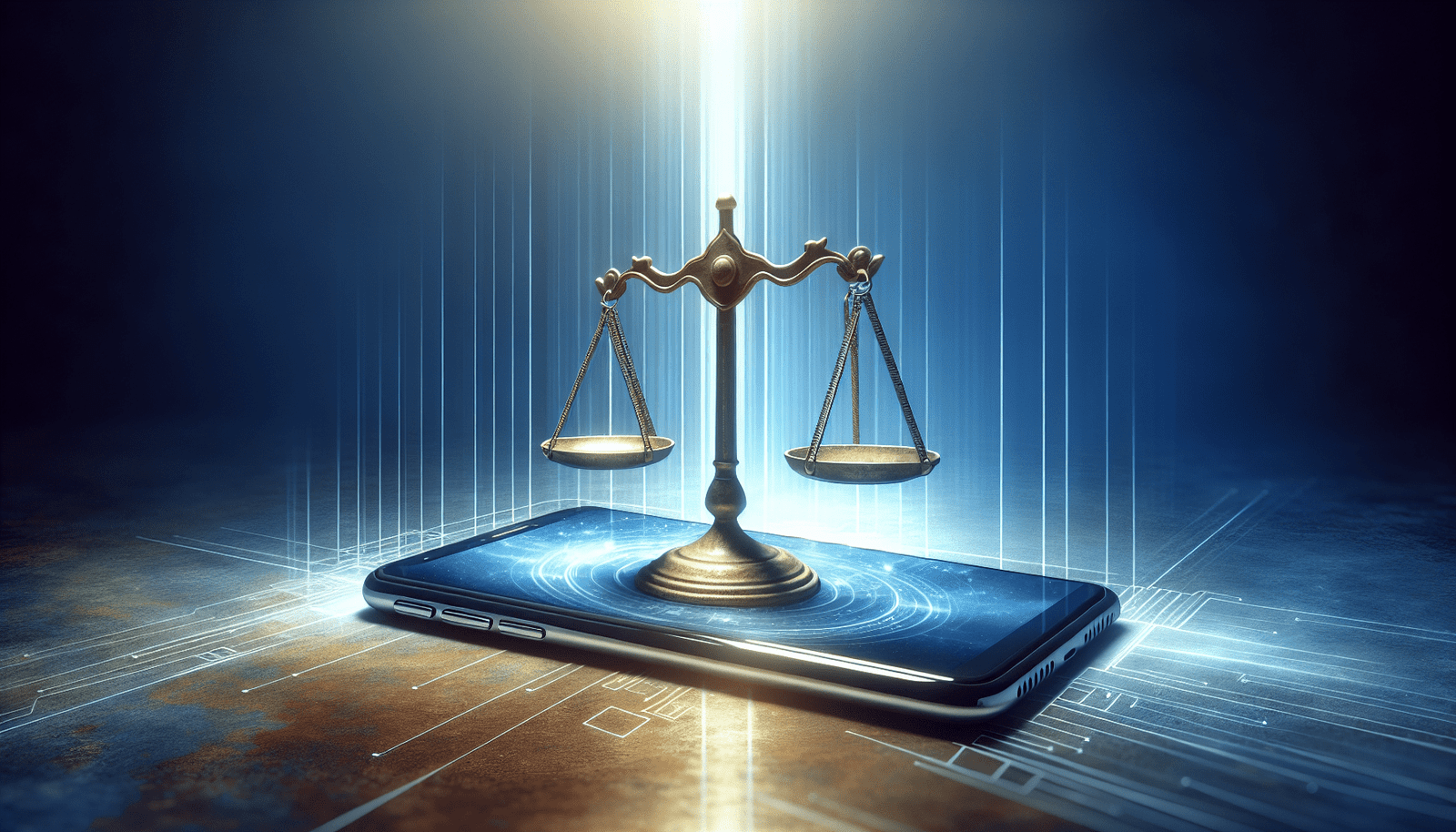Have you ever found yourself questioning the right course of action while using technology? In this age where our lives are intricately tied to digital interactions, the importance of understanding digital ethics cannot be overstated. The moral dilemmas we face in a connected world are complex, often leaving us uncertain about the best choices.
Understanding Digital Ethics
Digital ethics refers to the set of principles that guide our behavior and decisions as we navigate the digital landscape. Just like traditional ethics, digital ethics helps me evaluate what is right or wrong in various online situations. With technologies evolving rapidly, these ethical considerations become increasingly important.
The Importance of Ethics in the Digital Age
As I use technology, I often reflect on how decisions I make can impact not just my own life but the lives of others. From social media interactions to data privacy concerns, every online action has ethical implications. It’s not just about following rules; it’s about understanding the consequences of my choices in a broader societal context.
The Role of Technology in Modern Society
Today, technology is at the heart of everything I do. Whether I’m communicating with friends or working remotely, I rely on various tools and platforms to connect. This constant connectivity brings with it great benefits but also a myriad of ethical challenges. Acknowledging these challenges enables me to make informed choices that align with my values.
Key Principles of Digital Ethics
As I navigate the digital landscape, several key principles help guide my ethical decisions. Understanding these principles can empower me and others to act responsibly.
Privacy and Data Protection
With my personal data being collected and analyzed every day, protecting my privacy is paramount. Data breaches and unauthorized use of information are real threats in today’s world, and I must always be cautious about the information I share online.
Transparency
Transparency is essential for trust, both in my personal and professional relationships. When businesses collect my data or use algorithms to curate information, I want to know how these processes work. Transparency allows me to make informed decisions regarding my interactions with various technologies.
Responsibility
With great power comes great responsibility, or so I’ve learned. My actions online can have far-reaching consequences, whether I’m posting on social media or sharing personal information. Accepting responsibility for my actions helps foster a more ethical digital environment.
Fairness and Equality
As I engage with different online platforms, I am reminded that fairness and equality should always be at the forefront. Digital rights should be accessible to everyone, regardless of background. I strive to be mindful of this in my online interactions and advocacy.
Common Digital Ethical Dilemmas
Throughout my digital journey, I encounter numerous ethical dilemmas. These challenges vary widely, but I can often categorize them into a few common areas.
Social Media and Misinformation
Social media platforms have transformed the way I communicate, but they also present challenges related to misinformation. When I see a post claiming to share factual information, I have to critically assess its credibility. The spread of false information can have serious consequences, and I must act responsibly by verifying sources before sharing.
Data Ownership
One issue that often crosses my mind is the ownership of data. If I post a photo or write a blog entry, who really owns that content? Many platforms have policies that confuse users about their rights. Understanding my digital footprint is essential for protecting my intellectual property and privacy.
Cyberbullying
The anonymity of the internet can lead to troubling behavior, such as cyberbullying. As someone who values kindness and empathy, I make a conscious effort to promote positive interactions online. If I see someone being bullied, I believe it’s my responsibility to speak up and support the affected individual.
Algorithmic Bias
Algorithms are everywhere, shaping the content I see and influencing decisions in various sectors, including hiring and loan approvals. However, biases can inadvertently be programmed into these algorithms, leading to unfair outcomes. I strive to be aware of how algorithms affect my experience and advocate for fairness in technology.
Navigating Ethical Dilemmas in a Connected World
Having recognized the challenges and considerations present in the digital realm, I feel empowered to navigate them. Here are some strategies that I find helpful when faced with ethical dilemmas.
Practicing Critical Thinking
In today’s information-saturated environment, critical thinking is essential. I continuously develop my ability to analyze data, evaluate sources, and question what I encounter online. This skill allows me to make informed decisions instead of reacting impulsively.
Staying Educated
The world of technology is ever-evolving, and I strive to stay informed about new developments and ethical considerations. By reading articles, attending workshops, and engaging in discussions, I deepen my understanding of digital ethics and make more responsible choices.
Embracing Empathy
Whenever I interact online, I try to put myself in others’ shoes. This practice of empathy helps me consider the impact of my words and actions. By fostering a more compassionate digital environment, I contribute to a community where ethical behavior is the norm.
Monitoring My Digital Footprint
I regularly assess my digital presence, examining the information I share and how it may be perceived. By being mindful of my online behavior, I can protect not only my privacy but also maintain a positive digital reputation.
The Future of Digital Ethics
As technology continues to advance, I believe the discussion around digital ethics will only grow in importance. Several trends may shape this conversation in the coming years.
The Rise of Artificial Intelligence
Artificial intelligence (AI) has the potential to revolutionize various industries, but it brings ethical implications that I must consider. Questions surrounding algorithmic fairness, accountability, and transparency need to be addressed as AI becomes more integrated into our lives.
Increased Focus on Cybersecurity
With the number of data breaches rising, cybersecurity will become a focal point in digital ethics. Organizations and individuals alike will need to prioritize protecting sensitive information and ensuring robust security measures are in place.
Advocating for Digital Rights
As I engage with various communities, I feel a growing sense of responsibility to advocate for digital rights. Ensuring equitable access to technology and protecting individuals from discrimination online are causes I am passionate about supporting.
Engaging with Digital Ethics as a Community
One important aspect of navigating moral dilemmas in a digital world lies in collaboration. I find that engaging with others can enhance my understanding of digital ethics.
Discussion and Collaboration
Participating in conversations around digital ethics allows me to hear diverse perspectives. When I engage in discussions, whether in person or virtually, I have the opportunity to learn from others and share my insights.
Community Initiatives
Many organizations are emerging that focus on promoting digital ethics. I can become involved by volunteering or supporting initiatives that prioritize ethical practices in technology. Together, we can work towards creating a more ethical digital landscape.
Advocacy and Awareness Campaigns
I can contribute to raising awareness around digital ethics through advocacy. Whether through social media campaigns or local events, I believe it’s essential to share information that can empower others to navigate ethical dilemmas in their online interactions.
Conclusion: Embracing a Responsible Digital Future
Reflecting on my own digital experiences, I understand that navigating the ethical complexities of the online world requires ongoing reflection, critical thinking, and empathy. As technology continues to evolve, I feel a responsibility to stay engaged with conversations about digital ethics and contribute to a more ethical environment.
In this connected world, the choices I make can shape not just my own digital footprint but the future landscape of technology. Embracing my role as a responsible digital citizen, I commit to upholding the values of privacy, transparency, and fairness. By doing so, I can help build a more compassionate and equitable online community for all.
As I continue to navigate these moral dilemmas, I invite others to join me in embracing ethical decision-making in our digital lives. Together, we can ensure that technology serves as a force for good in our interconnected world.






